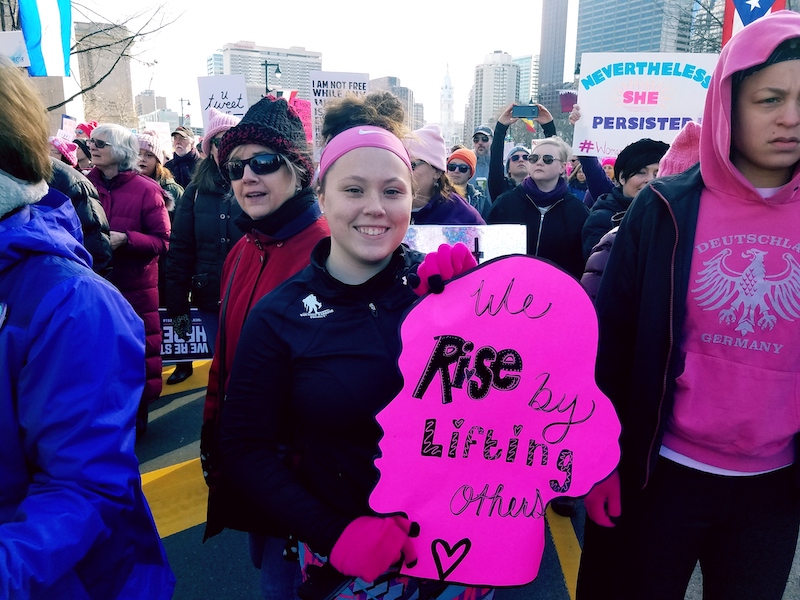Critics of the #metoo movement see trends that threaten to undermine the privileges they regard as rightfully theirs
More than a year into the #MeToo movement, new stories continue to break about powerful men brought low over patterns of sexual misconduct. In January alone, singer R. Kelly, actor Kevin Spacey, and director Bryan Singer all saw real professional and legal consequences for years of sexual predation. The conversations #MeToo has inspired on long-festering issues of sexual harassment and gender discrimination are acquiring momentum and depth. But there is one aspect of #MeToo that has not yet received the attention it deserves — possibly because it is discomfiting to so many of its would-be allies — and that is the threat the movement poses to the ruling class.
The people who see this threat clearly are the critics of #MeToo who identify as social liberals. Many of them claim to admire the movement’s achievements, and to rejoice in the downfall of egregious offenders like Harvey Weinstein. But those same putative allies of the movement also sense that #MeToo represents a real threat to the social hierarchy from which they benefit — and this elicits deep anxiety and fear.
A challenge to the social order
#MeToo is, among many other things, a revolt against the establishment. It is a revolt against the inadequacies of the legal system that usually protects the rulers, even as it fails to protect vulnerable people from predators. Every #MeToo story represents accountability not just for a particular bad man, but for a wider network of people who have profited from enabling and protecting him. The movement has exposed a narrow, legalistic understanding of morality, whereby actions can only be judged by the standards of what is admissible in court. The #MeToo movement challenges everyone to uphold standards of ethical decency that do not fall under the rubric of the letter of the law. This is a threat to those who have benefited from the status quo.
The anxiety of the establishment has been palpable almost from the beginning of the #MeToo movement. The New York Times broke the Weinstein story in October 2017; within one month, Times opinion editor and columnist Bari Weiss was concern-trolling that “due process is better than mob rule.” In a November 2017 column titled, “The Limits of Believe All Women” Weiss writes: “In less than two months we’ve moved from uncovering accusations of criminal behavior (Harvey Weinstein) to criminalizing behavior that we previously regarded as presumptuous and boorish (Glenn Thrush).”
A month later, in a column entitled “When #MeToo Goes Too Far,” Bret Stephens stood up for Thrush, then a star reporter at the Washington bureau of the Times who was under investigation for sexually harassing much younger women. Dean Baquet, the newspaper’s executive editor, eventually decided that while Thrush had “behaved in ways that [the Times] does not condone,” he “does not deserve to be fired.” Instead, management decided to punish Thrush by suspending him without pay for two months, and by removing him from the prestigious D.C. bureau. Many eyebrows rose over this decision and the ambivalent message it telegraphed about the paper’s policy toward sexual predators on staff.
On the one hand, investigative reporters Jodi Kantor and Megan Twohey were doing Pulitzer Prize-winning work that took down Harvey Weinstein, one of the most powerful men in Hollywood, and inspired a global reckoning with sexual predation and the people who enable it. On the other hand, when one of the paper’s own staffers was credibly accused of behaving inappropriately toward much younger women, management decided against enacting a policy that protected women by making men like Thrush understand the cost of harassment and predation.
The law v ethics
In publicly defending Thrush before the investigation into his behavior had concluded, Weiss and Stephens were expressing a concern that went far beyond the impulse to protect a colleague. Their worry is one that has echoed during the #MeToo era: what if the movement gets out of hand and “mob justice” fills the vacuum left by the failure of the legal system to punish sexual predators and protect the vulnerable? If someone like Thrush hasn’t committed a crime according to the law, but he has, to borrow a phrase from Baquet’s statement, “acted offensively,” who decides on the appropriate punishment? Thrush’s fate showed that the privileges men like him had viewed as rightfully theirs were suddenly vulnerable. It is this understanding that elicits the fearful responses we see disguised as righteous indignation.
What really worried Weiss and Stephens, in other words, wasn’t the threatening work environment that someone like Thrush might have created for younger women, but the idea that Thrush’s career trajectory might be affected negatively if he were judged by ethical standards instead of legal standards. In short, they were defending the freedom from accountability that is a perk of membership in the elite.
A September 2018 scandal involving an employee of Israel’s foreign ministry provides further insight into this anxiety. In the wake of credible accusations of sexual misconduct leveled by several women, David Keyes, who had been hired two years earlier as a spokesperson for Israel’s Prime Minister Benjamin Netanyahu, was forced to resign. Bret Stephens, who in his previous position as deputy opinion editor of the Wall Street Journal had worked with Keyes, commented on the record for the Times on this incident.
Back in 2013, Keyes, then a New York-based neoconservative activist, had frequented the Journal’s offices as part of his outreach to the opinion section. During this period, he propositioned at least four female Journal employees at the office. Stephens told the Times that “he gave Mr. Keyes a dressing-down, calling him a ‘disgrace to men’ and ‘a disgrace as a Jew,’ and barred him from the office without an appointment.” Stephens also said that in November 2016 he contacted Ron Dermer, Israel’s ambassador to the US, to warn him that Keyes “posed a risk to women in Israeli government offices.”
Stephens’s self-described actions in this story seem honorable at first glance. He chastised Keyes for his harassment of women at the Journal and he warned Keyes’s employer. But if Stephens knew that Keyes was harassing Journal employees, why didn’t he bar him altogether from the newspaper’s offices, instead of limiting him to visits by appointment? Why did a non-employee get to wander the Journal offices without an appointment in the first place, and why would anyone make an appointment with Keyes after being made aware of the serious allegations against him? Stephens also delayed contacting Dermer until months after Netanyahu hired Keyes as his spokesperson. He apparently took no further action after warning Dermer, and didn’t go public with any of this information until the story broke two years later.
These situations are, to be fair, not easy to navigate. Stephens might not have had enough information to take more drastic action than he did. Or he might have felt bound to respect the privacy of Keyes’s accusers, who had not yet gone public. And it’s also worth acknowledging that all of the incidents involving Keyes preying on women at the Journal took place before #MeToo, which upended everyone’s understanding of how someone like Keyes might be held accountable.
Who decides on justice?
But what’s striking about the way Stephens chose to handle the matter is that he deferred to Dermer’s judgment and kept the matter out of the public domain. Stephens balanced his desire to prevent workplace harassment of women against his relationship with Dermer, who is an extremely powerful figure in Israel and in the elite U.S. media circles in which Stephens operates; and he exercised the prerogative of powerful white men to decide how best to handle a male employee’s conduct toward women.
I don’t like Stephens’s work and I disagree with his politics, but this isn’t about picking on him. This is about identifying the real source of his concern regarding #MeToo — i.e., not that predatory men are being held accountable for their behavior, but that powerful people won’t be able to control the process of accountability, and that instead accusers will be able to try predatory men in the court of public opinion. Stephens isn’t defending the right to harass, but he is defending the right of people like him to decide what constitutes harassment — and what an appropriate punishment ought to be. He is defending, in short, the existing power structure.
Another recent example can be seen in Ian Buruma’s brief tenure as editor of the New York Review of Books. Last fall, Buruma decided, against the wishes of most of the NYRB staff, to publish a first-person essay by Jian Ghomeshi, the disgraced host of Q, a syndicated radio program, who had been fired from the Canadian Broadcasting Company (CBC) in 2014 after more than 20 women accused him of non-consensual violence during sexual encounters.
The Ghomeshi essay prompted mass outrage in the literary world and set off a storm of rage on Twitter. Then Buruma compounded his error by agreeing to an interview with Slate’s Isaac Chotiner, in which he made clear his ambivalence about #MeToo and his concern that it could have “undesirable consequences.” Of Ghomeshi’s actions, Buruma said “All I know is that in a court of law he was acquitted, and there is no proof he committed a crime.” He added, “The exact nature of his behavior — how much consent was involved — I have no idea, nor is it really my concern.” After the Chotiner interview, NYRB staff revolted, and the magazine’s publisher forced Buruma to resign.
Buruma, like Stephens, has not been accused of sexual misconduct. The unsettling thing about his actions is that he instinctively extended the benefit of the doubt to a credibly accused violent predator whose behavior had long been an open secret in Canadian media circles, tolerated by male executives who for years had considered Ghomeshi too valuable to fire. Instead of experiencing relief that such a dangerous man had been exiled from media, Buruma felt moved to give Ghomeshi a prestigious new platform, to facilitate his return to polite society, and to defend him on the grounds that he hadn’t been convicted in court. Ghomeshi is legally entitled to his freedom, but it’s men like Buruma who think he’s entitled to a powerful position in the culture as well.
Or consider the most recent edition of Esquire magazine. It features a cover story on a white middle-class 17-year-old boy in Wisconsin trying to navigate the murky waters of the post-#MeToo era. The teenager in question comes across as remarkably ordinary, but Esquire editor Jay Fielden provides a very telling reason for telling the boy’s banal story via one of the most widely read publications in print journalism. In an editor’s letter, he writes:
“The very social fabric of modern democratic civilization — watercooler BS, chats with cabbies and total strangers, dinner parties, large family gatherings — sometimes feel like a Kafkaesque thought-police nightmare of paranoia and nausea, in which you might accidentally say what you really believe and get burned at the stake.”
Fielden mourns an imaginary era in which playing devil’s advocate at parties was a fun pastime (for white men like him, he neglects to add). And he expresses his concern that kids today are feeling overwhelmed by “the passions and change this moment has unleashed—#MeToo, gender fluidity, Black Lives Matter, “check your privilege,” and #TheFutureIsFemale.” #MeToo, of course, is the first item on the list.
Protecting one’s own
Again, no one is accusing either Fielden or his teenage protagonist of having behaved inappropriately in their dealings with women. But Fielden shares with Buruma, Stephens, and so many other powerful white men in media an abiding concern that #MeToo represents a threat to him and to everyone else in his insulated world of upper middle class white people. It’s not sexual misconduct per se that he’s defending; rather, he is defending the right to be forgiven easily, to be protected from consequences, and to set the terms of debate, as men like Fielden can do by deciding who gets to be on the cover of a prestigious national magazine that is displayed on every newsstand in the country.
At its core, #MeToo is about who gets to hold power in the workplace. Until now, the people holding the power have been overwhelmingly white and male. Since almost no one gives up power and privilege voluntarily, these white men are obviously invested in maintaining the status quo. But even if that weren’t the case, even if the leadership class were fully representative of the country’s actual demographics, unaccountable power would be a problem in and of itself.
That’s why #MeToo frightens elites. It’s one thing to banish a handful of men for sexual predation or for using racial slurs, or even to replace them with leaders from the communities they offended and marginalized. It’s another thing to challenge the entire premise of their authority, to argue that the lowliest employees have a right to tell their story, to take private transgressions and make them public, to build solidarity with other people in the same position, and to rewrite the terms of one’s own employment without asking anyone’s permission. #MeToo isn’t just a cultural revolution; it’s a labor revolution, and it won’t be complete until the entire system that allows people to get away with predatory behavior is toppled.
David Klion is a freelance journalist who has written for The Nation, Jewish Currents, and The Guardian. Follow him on Twitter.



